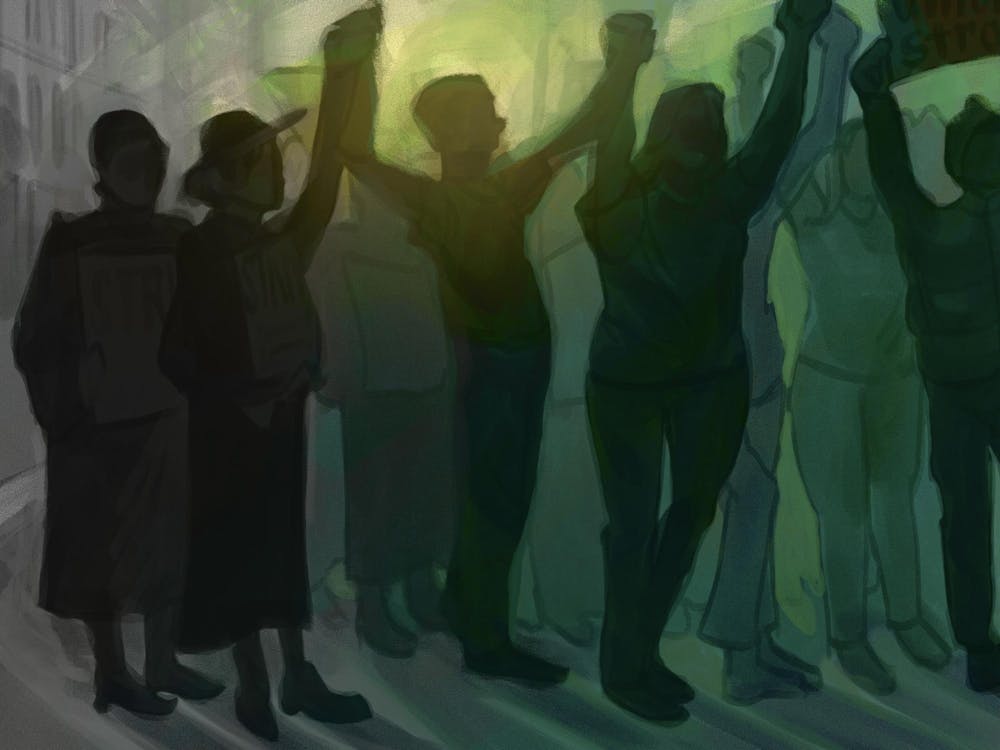The University will recognize the Brown Postdoc Labor Organization — the first dedicated union on campus for postdoctoral researchers and Dean’s Faculty Fellows — provided the signatories in BPLO’s petition for unionization are validated by federal mediators.
BPLO filed a representation petition with the National Labor Relations board Dec. 28, roughly three weeks after they announced their intention to unionize. In administering the petition, organizers seek to demonstrate that they have enough support to form a union, according to Caroline Keroack, a postdoctoral research associate and BPLO organizer.
Once filed, a federal mediator will compare the list of signatories to the “list Brown considers to be postdocs in the bargaining unit,” Keroack said. The union is currently waiting for federal mediators to certify that those two lists are in agreement with each other, she added.
If the mediators determine that “a majority of the proposed postdoctoral bargaining unit wishes to be represented by the union,” the University is prepared to “recognize the union and begin work toward negotiating a collective bargaining agreement,” University spokesperson Brian Clark said.
If its unionization bid is successful, BPLO will join the Rhode Island Federation of Teachers and Health Professionals/American Federation of Teachers Local 6516, which currently represents three other labor groups in the University community: the Labor Organization of Community Coordinators, Graduate Labor Organization and Teaching Assistant Labor Organization.
This approach, which the University also adopted when the Labor Organization of Community Coordinators unionized last fall, contrasts with its response to earlier organizing efforts by GLO and the Teaching Assistant Labor Organization. Neither TALO nor GLO received voluntary recognition, and both had to hold an election through the NLRB to be formally recognized.
Contract negotiations between union representatives and University administrators will begin after the University recognizes the union.
“A lot of unions have to go through an election phase where the bargaining unit votes yes or no for a union,” Keroack said. “I’m really excited that we don’t need to fight with an election and can move forward to bargaining our contract.”
BPLO was the third group to organize for unionization on campus in 2023, following TALO and LOCC. But organizers said BPLO’s unionization effort has been driven more by national trends than recent union victories on campus.
“I don’t actually think that those particular unions played a big role,” said Postdoctoral Research Fellow Sarah Neville, a BPLO organizer. Instead, “it’s part of a growing trend in higher education in general — most postdocs come from other universities, and some of them were in unions.”
Keroack, who participated in the graduate student union at Harvard while completing her PhD, recalls a drastic improvement in working conditions after unionizing. “The contract that we won really helped us,” she said, adding that she’s inspired by the possibility of extending those benefits to postdocs.
She also noted that postdoctoral unionization is uniquely challenging because their work is disjoint.
“Unlike students, we don’t take classes or do intramural activities together,” she said. “When I started my postdoc, I hadn’t met a single other postdoc besides the person in my lab for almost a year.”
But Keroack expressed hope that by organizing BPLO, she could create a stronger postdoc community.
Both Neville and Keroack said they have talked with hundreds of postdocs from a multitude of backgrounds and experiences to ensure the process is democratic and collaborative.
GLO Communications Chair Andrew Clark pointed to a “compounding effect” of unionization on campus, with labor organizations able to share knowledge and experiences.
And Keroack noted that BPLO has “drawn a lot of advice and experience from how the grad students were able to unionize.”
Keroack and Neville commented on how BPLO benefited from a campus and country more receptive to organized labor.
“It’s been incredible to see how receptive everyone is to the unionization process,” said Neville, who believes the trend of increased unionization on campus is indicative of how the labor movement is becoming more acceptable to younger people as a whole.
“Our generation (is) realizing that you can’t just rely on the benevolence of institutions to protect your rights,” she added. “You have to stand up and be in solidarity with your co-workers to get what you deserve.”
Correction: Due to an editing error, a previous version of this article incorrectly attributed the final quote to Keroack rather than Neville. The Herald regrets the error.
Grace Hu is a senior staff writer covering graduate student life. She is a sophomore from Massachusetts studying English and Neuroscience.





